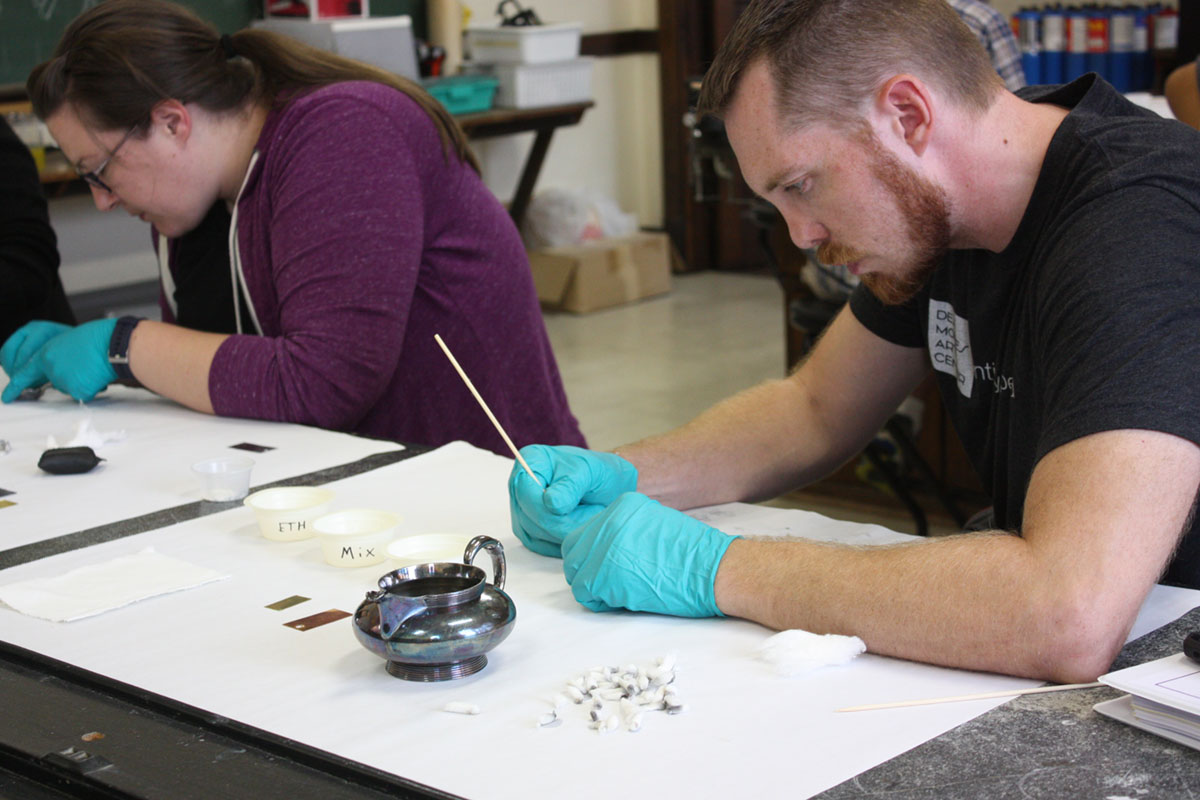Upcoming Workshops
Online Write or Update Your Emergency Plan
This 3-session online course will cover the fundamentals of Emergency Preparedness, explain the essential components of an Emergency Plan, and walk you through the steps to develop a plan for your organization. Provisions for both major and minor emergencies will be discussed, as will extended closure, and how to address an emergency within a larger disaster. You will work with an emergency plan template and will customize it for your own needs and risk factors. You will be encouraged to complete a risk assessment questionnaire (time estimate 2-4 hours) and work on your own institution’s plan (time estimate 4-6 hours) between the sessions. You will conclude with a draft of your new Emergency Plan to share with your institution and board.
Session 1: Wednesday, February 11, 2026 10:00 AM-12:00 PM Central
Session 2: Wednesday, February 18, 2026 10:00 AM-12:00 PM Central
Session 3: Wednesday, February 25, 2026 10:00 AM-12:00 PM Central
Fee: $400 Register Here
Fee for Minnesota Residents: FREE Register Here
Thanks to funds provided by the State of Minnesota from the Arts and Cultural Heritage Fund through the Minnesota Historical Society.
Online Writing Grants for Preservation and Conservation Projects
During this one session course, our instructor will present on grant-writing to fund practical conservation-related projects such as supplies and materials for the basic re-housing of collections, minor storage upgrades, monitoring equipment, general preservation needs assessment surveys, and preservation-related staff training. You will be instructed on how to conduct an internal review, develop a proposal, apply sound budgeting, procure matching fund components, and complete a final grant report. The instructor will also introduce you to prioritized collections care protocol and the importance of long-range conservation planning. Descriptions and information will be presented on specific grant applications from public and private funding sources, along with funding from private and regional foundations.
Session 1: Thursday, March, 5 2026 10:30 AM-12:00 PM Central
Fee: $150 Register Here
Fee for Minnesota Residents: FREE Register Here
Thanks to funds provided by the State of Minnesota from the Arts and Cultural Heritage Fund through the Minnesota Historical Society.
Online Write Your Long-Range Preservation Plan
A Long-Range Preservation Plan (LRPP) prioritizes preservation needs and develops concrete goals for the short-, medium-, and long-term. In this 3-session online course you will draft your own LRPP and learn how to use it to achieve conservation treatment goals and to submit competitive grant proposals for state and federal funding. This foundational course will focus on preservation fundamentals, how to assess and prioritize collections care goals, and is designed particularly for small institutions. This workshop includes group participation activities and a recommended 4-6 hours of independent work time outside of class.
Session 1: Wednesday, March 11, 2026 10:00 AM-12:00 PM Central
Session 2: Wednesday, March 18, 2026 10:00 AM-12:00 PM Central
Session 3: Wednesday, March 25, 2026 10:00 AM-12:00 PM Central
Fee: $400 Register Here
Fee for Minnesota Residents: FREE Register Here
Thanks to funds provided by the State of Minnesota from the Arts and Cultural Heritage Fund through the Minnesota Historical Society.
On-Demand Workshops
These one-day events can be brought directly to your institution. Contact us for more details and pricing.
Emergency Preparedness
Emergency Response: Wet Salvage
Describing What You See: Condition Reports
Art and Artifact Handling (1/2 day)
Testing for Arsenic in Collections
Museum Environments 101
Coming Soon
Check back for later offerings!
